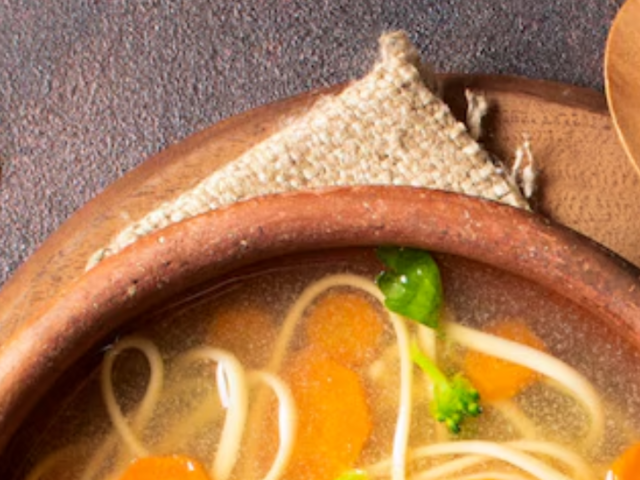
DDB Mudra Group's Amit Kekre on moving beyond tokenismDDB Mudra Group
How can brands be true allies to queer communities, shares DDB Mudra Group's Amit Kekre
Jun 16, 2021, 11:06 IST
ad-agencies
Don't use their queerness as their Achilles heel: DDB Mudra Group's Amit Kekre on what brands should do this pride
Jun 16, 2021, 11:06 IST
How can brands be true allies to queer communities, shares DDB Mudra Group's Amit Kekre
- This Pride, we want advertising and media industry’s queer folks to take up space.
- With our individual interviews, we will be focusing on harnessing the full power of our platform to highlight emerging queer leaders of the advertising industry.
- In today’s interview, we talk to Amit Kekre from DDB Mudra Group about building an inclusive space inside the organisations, working on campaigns that bring real change, moving beyond tokenism, how he feels about limited-edition merchandise and a lot more.
Many studies suggest that consumers, especially GenZ and Millennials, are now expecting to see brands address social, political and cultural issues such as climate change, the right to love whoever you want, to mention a few. According to a Sprout Social poll, more than half consumers say that they want to buy from brands that stand up for social issues.
While every day should be Pride Day, the earmarked month of June brings along an opportunity for us to sit and reflect on how far we have come, try to recognise and unlearn the biases, acknowledge the struggles that LGBTQIA+ people went through because of our ignorance, give a privilege check and start normalising the conversation at a macro level.
So, we decided to catch up with Amit Kekre, National Strategy Head, DDB Mudra Group, to understand how brands can be true allies to the queer community this month and every day after June.
Moving beyond tokenism
Come
So telling us how brands should stay away from this rainbow-washing, Kekre said, “Put your money where your mouth is. Second, don't just leave it at the level of ads. Enough has been said through advertisements and brands gain more from that and the community doesn't. Responsible brands that truly want to involve in a give and take, and not only take, can do a lot of things. One is brands are part of corporations -- those business organisations can make sure that they invite people from the queer community to be active members of their organisations.”
Many people have lost their jobs and livelihoods due to COVID-19. The situation, however, is grimmer as far as the lives of numerous transgender people are concerned, especially for all people from the Hijra community.
Adding on why brands should reserve jobs for marginalised communities, Kekre said, “If you're raising a cause, make sure that the cause doesn't die down with one ad. Make sure that the cause stays on with your focused commitment to it. The queer community needs a lot of support. Look at the last two years. COVID has impacted the trans community so much. They are literally out of livelihood. They don't know where to go, where they are going to eat from now. So, brands can come forward and do something real to bring a meaningful difference in their lives. They can give them employment; all the brands that have used the queer discourse to bring the story forward to the society can actually now also go one step forward and make real difference, give them employment, give them opportunities. Don't just leave it at telling their story.”
During Pride Month, Kekre’s phone buzzes a lot. Brands reach out to him to put them in touch with queer folks who do commericals or brand partnerships pro bono, which isn’t true for brands who look for cis-het influencers or content creators.
He shared, “A lot of brands use the queer community as their ambassadors, influencers, queer influencer, and often enough, it's an unsaid expectation that they would work for free. "Oh, you're queer. So we'll use your influence, but we won't pay for it because you're getting the limelight, and we are a big brand. So, why don't you just do it for us for free?" Queer people should do work for them for free just because they're queer. So, respecting the commercial ambitions of successful people is important because there's a lot of compromise that happens there. Would you do that with a heterosexual, heteronormative influencer? You wouldn't. I get so many calls, “Can you put us in touch with some of your friends who are influencers? But you know what, can you just make sure that it's free and that they don't charge?” I ask why? Why should they not charge? Don't use their queerness as their Achilles heel.”
Getting the marketing campaign right
Over the years, brands have made many campaigns; some have gone south and some have managed to tick all the right boxes. For Kekre, it is Times of India’s Out and Proud campaign for its honest portrayal and Brooke Bond Label’s 6 Pack Band for its gumption that continue to stay locked in his heart.
“I think, for the first time you saw the portrayal of the community that was not hyperbole, it was not exaggerated, it didn’t feed into the stereotypes. Times Out and Proud campaign showed people and members of the community just as real as they are -- as people who are full of flaws as well as beauty. It normalised the narrative, and the portrayal of the queer community,” explained Kekre.
He loves clients like Brooke Bond Label who help bring real change.
He said, “Second one that I really like, for just that simple bravery, is the Brooke Bond six pack band. For brands today, trust me, it takes a lot. On the entire queer spectrum, I think one of the most disadvantaged communities is the trans community. It takes a lot of gumption and courage for a brand of that scale, to imagine and create a mass narrative with a transgender band on it. Typically, the kind of conversations that you'd hear in boardrooms are: “Oh, we'd speak to the family audience and we speak to the mass audience and they're not in tune with this kind of 'evolved discourse'.” And here's a brand that proves it all wrong. It goes ahead and perhaps addresses one of the most stigmatised issues and marginalised sub-communities within the entire queer community and does a really good job of it. Forget the execution, the insight and the idea in the ad -- I just like it for the sheer bravery of it. I love clients who do that kind of work. Otherwise, you just lose time and so much effort in leading this overt intellectualization that goes on and on. And everything basically is done to cover the lack of conviction and the lack of gumption that clients have in really doing something meaningful for the community because you can hedge your bets all you want but if you really want to do something, you'll show up.”
One campaign that made him cringe was “Karan Johar Knorr soup ad without blinking an eyelid.” He explained, “It kind of projects the community as overtly sexualized, people who don't have anything on their minds but sex.”
So, we asked him which approach works best: a campaign targeting discrimination and stigmas, or a campaign celebrating the community or a campaign that includes couples of all kinds?
“It completely depends on what the task is. Why are you doing and what you're doing? There are lots of variables that you need to keep in mind and really evaluate. But at a general level, from the community's point of view, which campaigns are the best: I think campaigns that show the community in a normalised light. Excess of everything is bad. This overt depiction of pathos is also something that's been happening quite a lot. Having said that, the large part of the country doesn't actually recognise the anxiety and angst that people from the community go through. Some campaigns that show that anxieties show that pain is also critical, provided you show that anxiety in a real sense, you don't overdramatise it, and you don't ridicule it either. It's a very sensitive portrayal that you need to put there.”
Kekre added that celebratory campaigns also do well if done in the right way.
“We've done that with Levi's ‘proud to be more’ campaign. It's a celebration of the queer community, where it's based on a simple idea that these are people who are far more than their sexual identity, and the success that they've reached in their professional circles. And I think those kinds of campaigns go a long way in normalising. Don't look at them from a special lens. These are people like you and I, and their sexuality, just like anybody else's sexuality, is a small part of their life. There is a larger life-narrative that they also hold. Celebrate that as well,” said he.
Rainbow Merchandise: Yay or nay?
Brands often launch limited-edition rainbow-coloured merchandise during Pride month. From Lego to Fossil, there’s a bunch of brands who have done it this year as well. While it reflects that there’s an increased awareness, it comes across as a monetisation opportunity.
Kekre, again, said there’s a way to do it right. He shared, “Merchandise is often used as a monetising opportunity on the back of people's sentiment or on the back of a community. Having said that, I think when the merchandise is done meaningfully, it works. It was done with Levi's jeans series. There are some brands which specifically design their products for the community and there are some brands that are specifically creating products for the community. So the latter works. But limited-edition merchandise, I think it needs to be done a little bit more thoughtfully because I wonder who is it targeted at? The reach tends to be very limited. From a marketing perspective, I wonder if it makes sense for the organisations or for the audience as well. So I view this limited-edition merchandise with a little bit of suspicion.”
Looking inside to change the world
As an industry, advertising is known to lead to change. It can use its influential power in mending belief systems and nudging people to question their regressive thoughts. It can bring about normalisation and make people embrace the entire spectrum.
Apart from using their advertising and marketing tools tactfully, brands and ad agencies can work towards improving gender representation inside their organisations at a structural level.
Kekre has introduced an internship program at DDB Mudra Group, which is specifically designed for the transgender community to help them ease into the organsation, sharpen their skillsets and simply give them an opportunity to shine because other organisations don’t.
Many organisations hire one queer person and make them the face of diversity at their organisation. Recently, Cannes Lions was called out for hiring one person of colour at Roger Hatchuel Academy and making them the face of diversity but it has now onboarded a specialised Diversity, Inclusivity and Equity agency to correct its course.
Highlighting how organisations need to have an active approach towards hiring queer folks as well, he said, “It's a journey and most organisations have started on the journey pretty recently. So, there will be slow steps. This one person as the face of the queer community -- ticking the job on that list -- is not the approach that organisations should take. It should be like any other diversity initiatives. For example, when it comes to gender representation, most organisations have recognised the unconscious bias and have set targets to include X percent of female employees. Those kinds of targets also need to be set for people from the queer community. And that's where I think the stand needs to change.”
He added, “Most organizations have a very passive acceptance towards the community. They'll have policies which say, "Okay, if you're working with us, and if you happen to be queer, then we won't discriminate." But that's still at a very passive level, you need to have policies which are actively inviting people from the queer community to join the organisation. For example, have a program like DDB Transit does; it goes to queer interest groups, to welfare organisations, sets up camps, and invites people from the queer community to come and join us. It's not about after you've joined, if you happen to be queer, we'll take care of you. We're actually saying, "Hey, if you're queer, please come and join us." And we'll make it an inclusive environment for you, we'll make sure that we have policies for you that are designed that way. We also happen to be the first agency that has same sex insurance and we're committed to making a whole host of other changes: from physical infrastructure that is required or mental infrastructure that needs to be put in place -- it needs to be an overt statement, and there needs to be a financial and mental commitment to it. We aren't doing it just for the sake of tokenism -- there needs to be value in it for both the organisation and community.”
Kekre suggested moving beyond marketing and advertising to bring real change in the society and taking a step forward towards inclusion and normalisation.
“From a communication perspective, I think most brands are still in the trap of doing representational work with the community. And that's where change needs to happen,” said Kekre.
Brands have a responsibility to the community and they should aim to not only promote themselves, but address larger social issues throughout the year, only then can they be true allies.
Also Read

Best LGBTQ+ campaigns India has seen over the years
How can brands be true allies to queer communities, shares DDB Mudra Group's Amit Kekre
INSIDER INTELLIGENCE REPORTS







